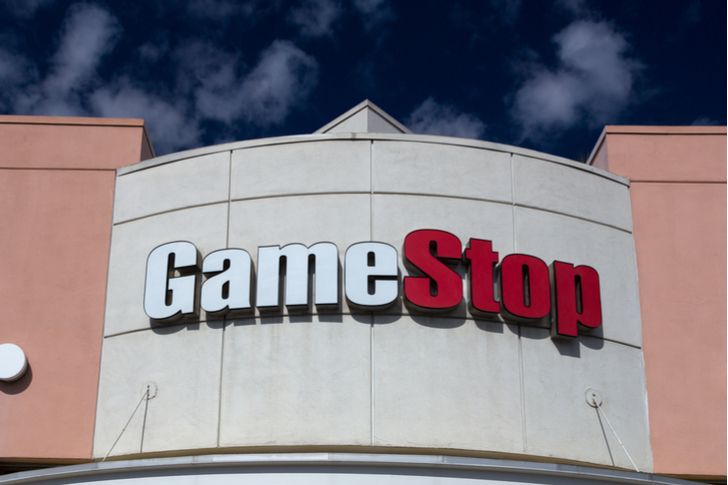Without much background, you’d imagine that GameStop (NYSE:GME) is a company on the resurgence. Since the end of May, GME stock has gained more than 19%. Furthermore, with video games being a popular activity cutting across many demographics, GameStop’s rally seemingly has strong fundamental support.
However, most covering analysts simply aren’t buying into GME stock. They’re not necessarily bearish, but they’re overwhelmingly sitting on the fence. Not only that, over the past few months, bullish analysts have steadily given up their support. Currently, only four analysts rank GME as a “buy” or better against seven “holds” and one “sell.”
In these cases, the contrarian temptation is to buy the bad news. At the same time, investing in a fundamentally poor organization will usually result in further losses. Is GME stock an opportunity that others aren’t seeing, or a name that you should sideline?
Let’s first look at the bearish argument:
“Digitalization” May Kill GME Stock
At first glance, the apathy and even outright bearishness toward GME stock seems contrary to industry trends. As I and so many InvestorPlace contributors have explained, the video game industry is one of the most dominant investment segments. It’s constantly evolving, captivating audiences both young and old, and everyone in between.
Certainly, avid gamers have formed the foundation for GameStop’s historical success. But at the end of the day, GameStop is a brick-and-mortar retailer. They largely depend on Sony (NYSE:SNE) and Microsoft (NASDAQ:MSFT) gaming console sales. In addition, they sell physical units of the latest titles from Electronic Arts (NASDAQ:EA) or Activision Blizzard
(NASDAQ:ATVI).
So why is this a problem? Because distributors are no longer looking at the retail channel as their bread-and-butter revenue generator. Instead, digital downloads represent the lion’s share of video game sales. Several articles have discussed this plight, although our own Laura Hoy nailed this topic last year.
Essentially, video game companies are shifting toward digital distribution as opposed to physical disc sales. Not only that, console makers will revamp their online platforms to offer gaming subscription services. Think Netflix (NASDAQ:NFLX) for video games. Once that becomes a mainstream reality, you can kiss the brick-and-mortar middleman goodbye.
The trend is both fascinating and frightening, depending on your exposure to GME stock. In 2009, physical discs represented 80% of all computer and video game sales. Last year, that figure dropped to 21%. It is a near-complete reversal of fortune.
Some analysts have even stated that video games could go all digital by 2022. I’m not sure if that’s going to happen, but the statistical trends favor the bearish argument.
The Contrarian Argument for GME Stock
Just hearing about the dramatic shift in consumer behavior is enough for most people to drop GME stock. But for the adventurous type, some positives exist.
Let’s first talk about the math. When people see large behavior shifts, the tendency is to believe that the trend will continue indefinitely. But when downloads represented more than 60% of all video game sales in 2014, the erosion of physical-disc sales slowed significantly.
In other words, the low-hanging fruit for the bears is gone. For digital sales to continue making gains against physical sales will require greater effort for less-meaningful rewards.
Moreover, physical discs offer an advantage to gamers. Downloads require the entire program to be on the console’s hard drive. This may not be convenient for data-intensive titles which feature immersive storylines. Even for cloud-based subscription services, a console will always run physical-disc based games faster and more reliably.
Let’s not forget the most obvious advantage of physical games, which is network independence. That’s my overly convoluted way of saying that if your internet screws up, you can still play almost all of your games.
Plus, if you’re like me, you enjoy having tangible copies of your gaming library. Yes, a subscription service keeps your titles nice and tidy. However, nothing beats having something substantive in your hands. Not only that, it’s much easier to share with your buddies, or sell your games to GameStop.
Bottom Line for GME Stock
In my opinion, GME stock is a nuanced investment. While the fundamental backdrop is ugly, I wouldn’t call it a no-brainer shorting opportunity. In fact, I wouldn’t even think about shorting it.
But is GME stock a buy? It’s certainly not the top of my list, but it does have speculative appeal. If you understand the risks involved, I think GameStop can positively surprise you.
I say this because the common thread among all bearish stories about GME is the death of the used-game market. Having recently dusted off my PlayStation 4, and trekked over to my local GameStop, I think the obsolescence argument should be reexamined.
While subscription-based services offer convenience, you also pay for that convenience. Further, you have to constantly pay membership fees, irrespective of your actual usage. With a physical store, you choose what to buy, when to buy.
And again, there’s that old-school joy of going to a physical location, and picking out your next adventure. GameStop offers a human touch to the gaming world that digitalization just can’t duplicate.
As of this writing, Josh Enomoto is long SNE.

